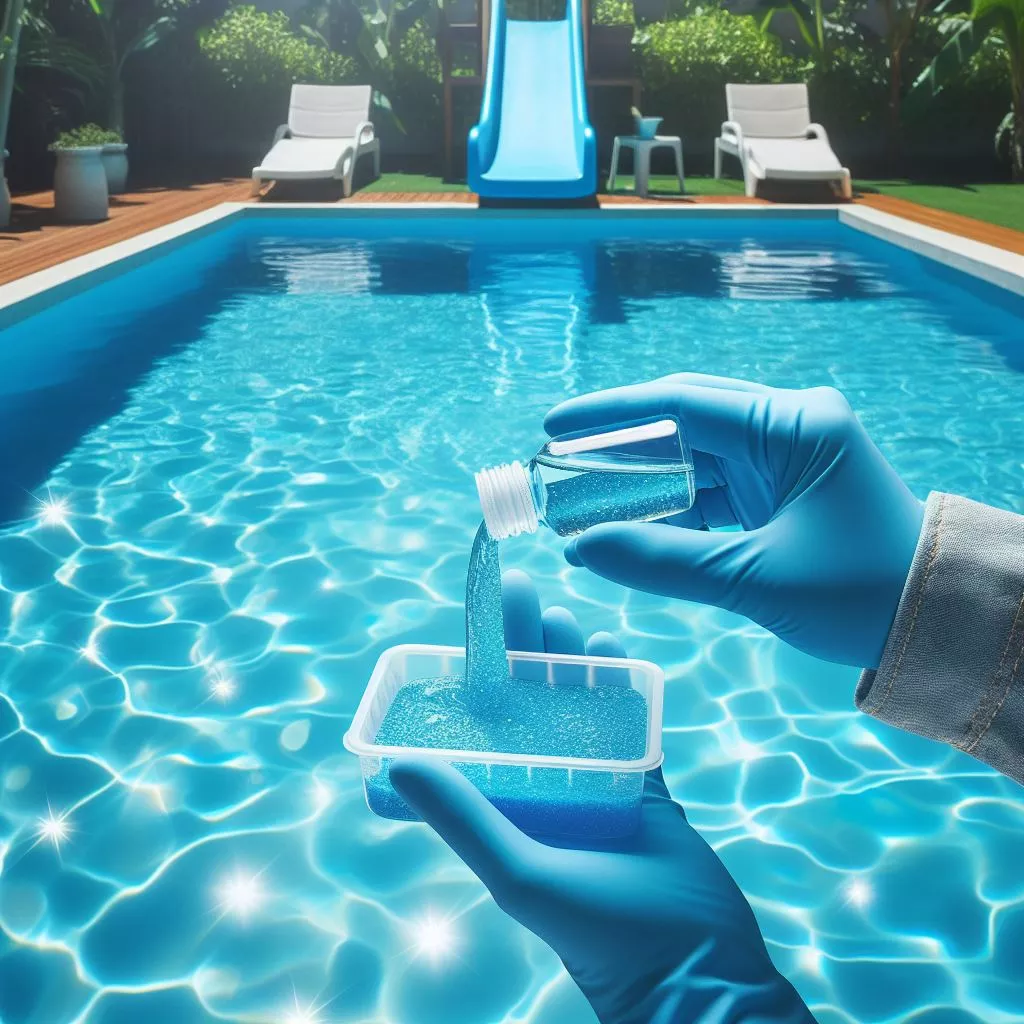Maintaining crystal-clear pool water is not just about aesthetics; it’s essential for ensuring the health and safety of those who dive into its refreshing embrace. A well-maintained pool also signifies a dedication to preserving the longevity and efficiency of pool equipment. Amidst the arsenal of tools and chemicals employed to keep the pool water inviting, pool flocculants play a pivotal role. These chemical agents work magic by clumping together the tiny particles that cloud the water, making it easy to remove them and thus restoring the pool’s sparkle. This guide aims to unravel the complexities of choosing and using pool flocculants, ensuring your pool remains a pristine sanctuary for relaxation and fun.

Understanding Pool Flocculants
At its core, a pool flocculant is a chemical compound designed to aggregate the microscopic particles that cause water to appear cloudy. These particles are too small to be caught by the pool’s filtration system on their own. However, when flocculants are added, they bind these particles together, forming larger clumps that either sink to the bottom of the pool for vacuuming or are large enough to be captured by the filter.
Flocculants come in various chemical compositions and forms, including liquid solutions and tablet-based formats. Some are made from organic compounds, while others are inorganic. The choice between these types hinges on several factors, including the type of pool, the nature of the contaminants, and personal preferences regarding chemical handling and environmental impact.
Factors to Consider When Choosing a Pool Flocculant
1. Pool Size and Type
The size of your pool and whether it is above-ground or in-ground can significantly influence the type of flocculant you choose. Larger pools might benefit from concentrated liquid flocculants for easy distribution, while smaller pools or spas could use tablet forms for their slow-releasing properties.
2. Water Source and Quality
Understanding the source of your pool water is crucial. Water drawn from wells might contain higher mineral content, necessitating a flocculant that can handle heavy metals and calcium efficiently. Conversely, pools filled with municipal water might require a different approach to manage chlorine levels and organic matter.
3. Compatibility with Pool Systems
Not all flocculants are suitable for every filtration system. For example, pools equipped with cartridge filters might not handle the heavy particle load created by a flocculant as well as sand or DE (diatomaceous earth) filters. Ensure the flocculant you choose is compatible with your system to avoid damage or inefficiency.
4. Ease of Use and Application
The application process can vary between flocculant types. Liquid flocculants might offer quick and easy application but require careful handling to avoid spills and overdosing. Tablet flocculants, while easier to manage, must be placed correctly to ensure they dissolve uniformly without causing filter clogs.
5. Environmental and Safety Considerations
With growing environmental concerns, many pool owners are now considering the ecological impact of their pool chemicals. Organic flocculants might offer a more eco-friendly option, breaking down into less harmful byproducts. Safety is another paramount consideration, especially in households with children and pets. Opt for flocculants with safe, secure packaging and follow all storage and handling recommendations.

 Instant
Quote
Instant
Quote Email
Us
Email
Us